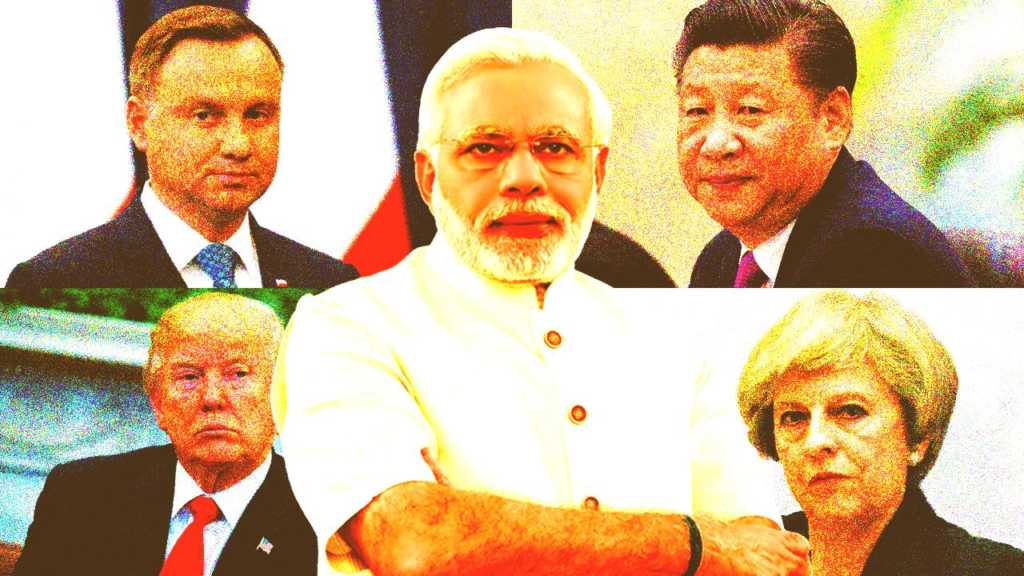Indian economy is in a healthy state, and it has been continuously growing upwards since the Modi government came to power. Many organizations like International Monetary Fund (IMF), World Bank and Asian Development Bank have praised the sound macroeconomic indicators of the country, and have suggested that the Indian economy will be the fastest growing major economy in the world in the coming years. While all organizations are talking about Indian economic growth, none of them have mentioned its aversion to any fallout from global trade wars.
Trade wars are going on at a full scale since Donald Trump became the American President, and there is a fear of economic fallout in countries that heavily dependent on trade. During his campaign, Trump promised protectionist economic policies which he is delivering on, and he recently asked China to reduce their trade deficit. Trump administration has imposed duties on goods imported from China to give a boost to domestic companies. Britain, which has opted to exit from the European Union, accompanied by nations like Poland, are also going against free trade. There is a backlash against free trade throughout the world which is expected to adversely impact economic growth of the countries which are largely dependent on trade for their economic growth. East Asian countries like China, Japan, and South Korea along with the small island trading nations of Singapore and Hong Kong will face a slow economic growth in the upcoming years. Indian economy will not be impacted as much because it is not integrated into global economy as much as other countries. Indian service sector exports like software and related services will not be affected due global trade wars because there is no alternative available to importing nations.
Sebastian Vergara, the United Nations Economic Affairs Officer, said “For India, despite the short-term tensions, the prospects in the medium term for the export of services are excellent, so India needs to take advantage of that competitiveness. The Indian economy can grow at least at 8 per cent, not just for a year or two, but for 15 years.”
The excellent economic policies of the Modi government are responsible for the sound macroeconomic conditions that India enjoys today. The inflation rate is under control (in the middle of RBI’s target of 4 to 6 percent), FDI inflow is at all-time high, the fiscal deficit is although slipping out of target but within control, the private consumption is growing very fast, private investment is growing and the confidence of Indian industry in the market is above average. On the Indian economic growth prospects and its capacity to deal with adverse global conditions, Sebastian Vergara said “India will, of course, be affected, but the effect will not be very strong, because of the productive structure of the Indian economy and because its driver of the growth nowadays is private consumption.”
India is among few countries that are registering sound economic growth despite global fallout due to the trade war among countries. The economic reforms by the Modi government like GST, the new single indirect tax regime, the Insolvency and Bankruptcy Code to solve Nonperforming assets (NPA) problem, and the land and labour reforms are expected to bring Indian economic growth into double digits in the upcoming years. The United Nations is also optimistic about Indian economic growth. Sebastian Vergara of UN said, “India has to have that growth rate as its target and it can then really achieve a big jump in its development and become an engine of (global) economic growth in the medium term.”
India is reaping the benefits of good policy reforms as well as the safe distance it maintains from getting too actively involved in the global economy.
